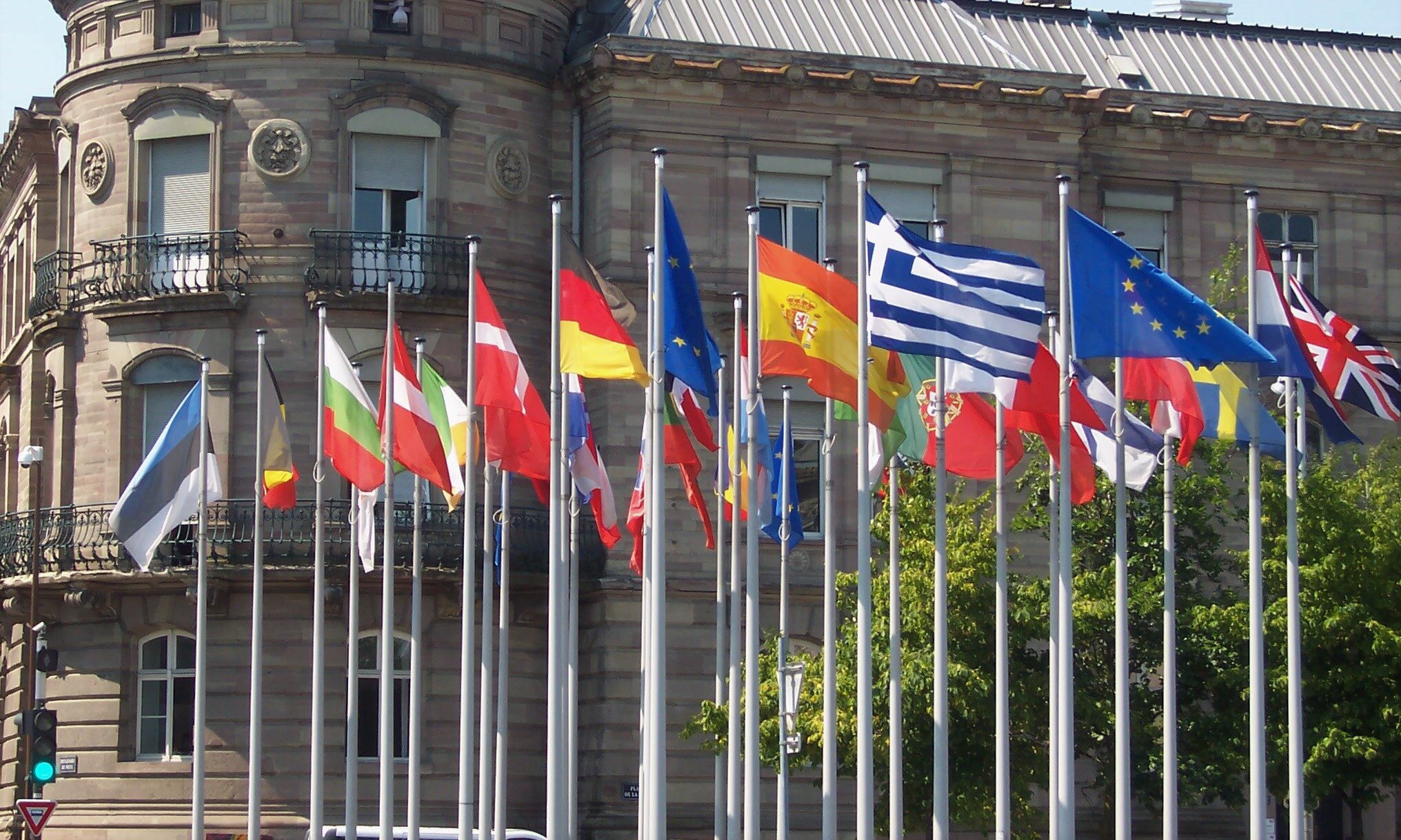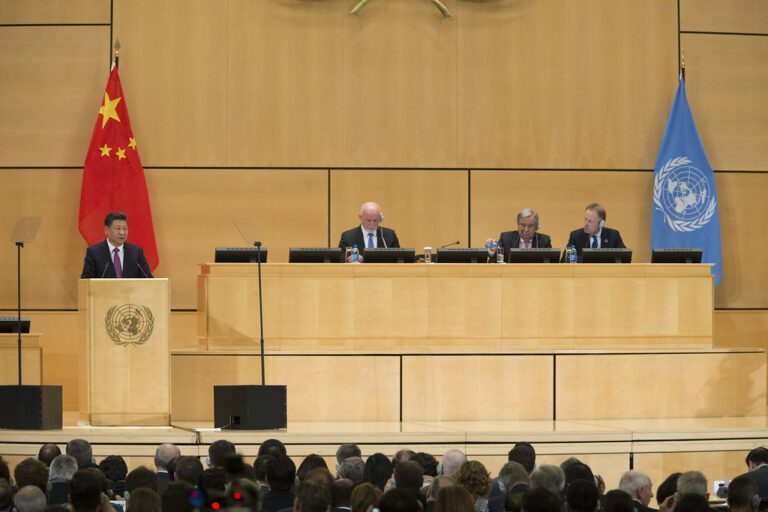
Although European believe ‘China is not Russia’, European perceptions of China are more complicated than some media coverage suggests. Country-specific data gathered by ECFR showcases that profound shifts are underway in many European countries when it comes to the way they see China and its international role.
In April 2023, European Council on Foreign Relations (ECFR) conducted an opinion poll of adult populations in 11 EU countries: Austria, Bulgaria, Denmark, France, Germany, Hungary, Italy, the Netherlands, Poland, Spain, and Sweden. Questions to the public revolved around issues related to China, Russia, and the US. Respondents were asked, among others, about their perception of what China is to Europe and the nature of Sino-Russian ties. The results of the poll, summarized in a report written by Jana Puglierin and Pawel Zerka, have made waves in the expert community, attracting a lot of attention from members of civil society and policymakers alike, both in Europe and beyond.
Some of the poll’s findings were also instrumentalized by Chinese diplomats and state-affiliated media as an alleged proof that Sino-European relations should go back to pre-pandemic and pre-war ‘normal’. For example, Wang Lutong, Director General for European Affairs at the Chinese Foreign Ministry, used the data to promote his view that both policymakers and media in Europe should “take an objective and rational view on China,” while the Chinese Embassy in Czechia forwarded the results to push forward the idea that all Europeans are united on seeing China as their necessary partner. Moreover, some data from the ECFR survey was further used by the Chinese side to boost a perception that Europe would likely remain neutral if a conflict over Taiwan erupted. But were the polling results indeed that unequivocal and straightforward when it comes to their policy implications?
Views of the China-Russia Nexus
One of the biggest takeaways from the poll was that Europeans believe that ‘China is not Russia’. In other words, despite growing concerns in Brussels and many other European capitals that the current status quo of relations with Beijing is risky and creates growing political and economic asymmetries, most respondents in 11 EU countries seem rather reluctant to significantly distance their countries from China. On average, 43 percent of respondents declared that China remains a necessary partner to Europe with which we must strategically cooperate. Compared to that, 24 percent see China as a rival with which we need to compete, while only 11 percent believe the country is Europe’s adversary with which we are in conflict.
Country-specific data, however, showcases that in some of the surveyed countries the ‘partnership mindset’ seems significantly challenged by those who believe that the competition and rivalry angles should be considered much more seriously in China policy. For example, in Germany, one of the key European players traditionally setting the tone of Sino-European relations, the public opinion appears surprisingly hawkish: while 33 percent of respondents do see China as a necessary partner, 32 percent believe it is a rival. Coupled with 18 percent seeing China as an adversary, precisely one half of German respondents would presumably agree that a far-reaching remaking of the German China policy is needed. Data suggests that the same could also be true for Sweden, France, and Denmark.
Another important segment of ECFR’s polling concerns China-Russia ties and potential sanctions against Beijing if it was to provide weapons and ammunition to Moscow. While a relatively low number of 26 percent of European respondents believes that China and Russia are more or less equal partners in a close anti-Western alliance, the readiness to impose sanctions on China if it was to provide lethal aid to Russia seems remarkably high.
Importantly, even though the question regarding sanctions highlighted that they could seriously harm Western economies, 41 percent of European respondents agreed that they should be imposed. In three out of 11 surveyed countries (Sweden, Denmark, and Netherlands), more than half of the respondents agreed with the premise. The only outliers with less than 30 percent of agreement over the issue were Italy and Bulgaria.
As far as economic ties are concerned, public opinion remains unsure about their risk assessment of Europe’s trade and investment relationship with China. While 35 percent of respondents see as many risks as benefits in this realm, 16 percent see more risks, and 21 percent more benefits. Yet when asked more specific questions, ECFR’s respondents were more opinionated in their assessment. For example, as many as 65 percent of surveyed Europeans believe that Chinese ownership of infrastructure such as bridges or ports in Europe is unacceptable, while only 18 percent find it acceptable. The polling results are more even, however, when it comes to the idea of Chinese companies building infrastructure, with 39 percent of respondents agreeing with it and 43 percent disagreeing. As one can see, the idea of control that ownership implies seems much more polarizing. Most European respondents also agree that Chinese companies should not buy technology companies in Europe (52 percent) or newspapers (59 percent).
Taiwan as a Blind Spot
Last but not least, ECFR’s polling touched upon one of the most controversial yet also consequential topics in the international debate, namely China’s potential invasion of Taiwan. When asked about a hypothetical scenario in which China was to invade Taiwan and the US came to its defense and joined the war, 62 percent of European respondents wanted their countries to remain neutral. Unsurprisingly, this result was enthusiastically picked up by the Chinese side, signaling the importance of the subject for Beijing. Sweden and Poland were the only two countries covered by the poll where over 30 percent of respondents wanted to support the US regarding Taiwan’s defense. On the other side of the spectrum were Austria and Bulgaria, where only 9 percent and 8 percent respectively would side with Washington.
What do these numbers tell us? First, they suggest that Taiwan might still be regarded in many parts of Europe as a geographically distant place with little impact on the situation on the ground in the EU. This misperception is probably related to the lack of coverage and interest in Taiwan that would go beyond the long-standing and simplistic narratives about the alleged “renegade province” – a pawn in the game of bigger powers, China and the US.
Moreover, Europeans now might not have an appetite for defending Taiwan for the simple reason of not associating it with their own security (as the potential theatres of war in Europe and the Indo-Pacific are merging during the war in Ukraine), their own economic prosperity (given Taiwan’s important position in the international value chains), and high-tech development (because of Taiwan’s leading position in the semiconductor industry). Finally, the importance of defending Taiwanese democracy should also play an important role for many in Europe who want to maintain the rules-based international order – a system that has enabled the continent to prosper for many decades. In other words, neutrality might not be an option if an escalation does take place over the Taiwan Strait.
China-related policy implications of ECFR’s recent polling data are less straightforward than what the Chinese side would like them to be. Importantly, average results could have been different if some smaller, yet more assertive countries (such as Lithuania or the Czech Republic) had been included in the survey’s methodology.
Nevertheless, the results in hand do suggest some blind spots in the public debate in different European countries, with the importance of Taiwan for both the EU and the global order being one of the most striking. What is now urgently needed is an inclusive debate among both expert and non-expert audiences to bring Taiwan closer, both intellectually and on a more personal level, to Europeans. This does not mean it should be instrumentalized, however, for example in the context of transatlantic relations. One thing is sure: there is a long way to go to get rid of this blind spot.
Written by
Alicja Bachulska
a_bachulskaDr. Alicja Bachulska is a Research Fellow at CHOICE and Policy Fellow at the European Council on Foreign Relations where she focuses on Chinese foreign policy and China-EU relations.


